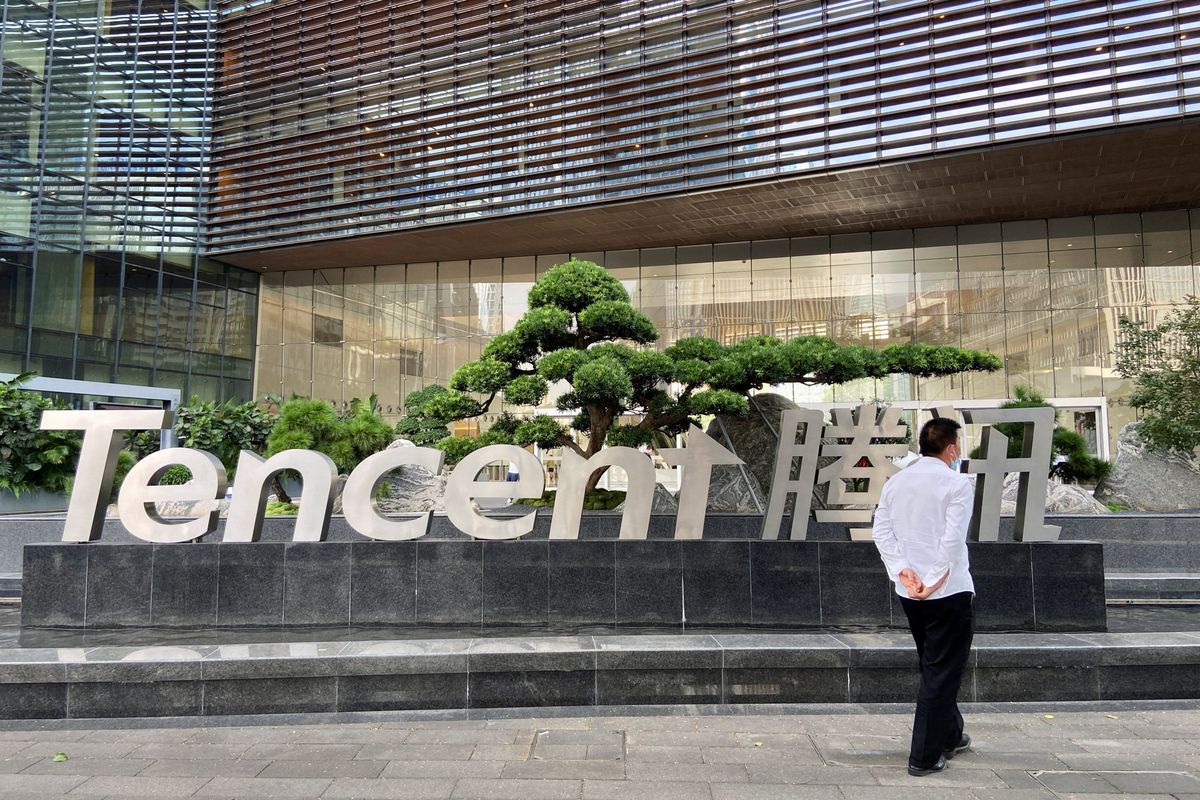US chip export curbs have China’s tech shares tumbling

A few minutes every morning is all you need.
Stay up to date on the world's Headlines and Human Stories. It's fun, it's factual, it's fluff-free.
When it comes to global tech, the semiconductor supply chain is pretty exclusive. Lately, China has been investing a lot in domestic tech to get in on the industry. Right now, Taiwan Semiconductor Manufacturing Company leads manufacturing for the most advanced semiconductors. And Netherlands-based ASML is the only company that makes the machines for creating the most advanced chips. Plus, US companies like Lam Research, KLA and Applied Materials make other tools needed for chip manufacturing.
On Friday, the Biden administration enacted new export controls cutting accessibility of certain semiconductors to China, including any made outside the US using American equipment. What does this mean for China’s tech industry? Well, these restrictions are expected to slow down China’s chip industry and its efforts to develop advanced military weapons, artificial intelligence, data centers and other areas that rely on these chips. Already, we’re seeing European and Chinese semiconductor stocks take a tumble.
Key comments:
“This is the US salvo against China’s efforts to build its domestic tech capabilities. It’s the US firing back, making clear they will fight back,” said Dylan Patel, chief analyst at SemiAnalysis.
“These rules make clear that foreign government actions that prevent [the Bureau of Industry and Security] BIS from making compliance determinations will impact a company’s access to US technology through addition to the Entity List,” the US Department of Commerce said in their Friday statement.
“As I told Congress in July, my north star at BIS is to ensure that we are appropriately doing everything in our power to protect our national security and prevent sensitive technologies with military applications from being acquired by the People’s Republic of China’s military, intelligence, and security services,” said Under Secretary of Commerce for Industry and Security Alan Estevez. “The threat environment is always changing, and we are updating our policies today to make sure we’re addressing the challenges posed by the PRC while we continue our outreach and coordination with allies and partners.”
“The US has been abusing export control measures to wantonly block and hobble Chinese enterprises,” Chinese Ministry of Foreign Affairs Spokesperson Mao Ning said over the weekend.
“Only arrogant and ignorant people can truly believe that the US can block the development of China’s semiconductor or other technology industries by these illegitimate means,” said China’s news outlet Global Times in an editorial. “The US hegemony in science and technology that harms others without benefiting itself may bring some short-term difficulties to China’s semiconductor industry, but will in turn strengthen China’s will and ability to stand on its own in science and technology.”




Comments ()